Television evangelist Pat Robertson once described feminism as “a socialist, anti-family, political movement that encourages women to leave their husbands, kill their children, practice witchcraft, destroy capitalism, and become lesbians.” His comment is frequently used as a particularly extreme version of the feminist stereotype, but how far are his sentiments from those of the general public?
A more systematic investigation into what people think about feminists found that many people think that feminists are ugly, uptight, angry, aggressive, harsh, strident, demanding, dogmatic, man-hating lesbians … or think other people think they are. Only 26 percent of people say that feminist is a positive term.
This suggests that actual feminists have lost control over their own reputation. It would be counterproductive, after all, for feminists to portray themselves as unlikeable. Negative stereotypes about feminists, instead, are likely spread by anti-feminists.
Anti-suffrage campaign material is one example. The images below tells a story about who the feminist women fighting for suffrage are and what they want. It’s all pre-1920s, but the stereotypes and fears are similar.
Feminists are ugly:

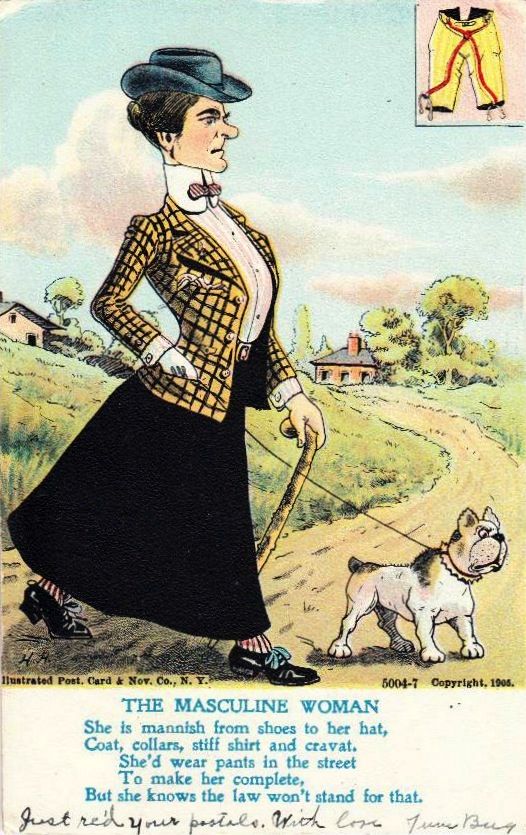
Feminists neglect their natural role as a mother/are uncaring toward children:
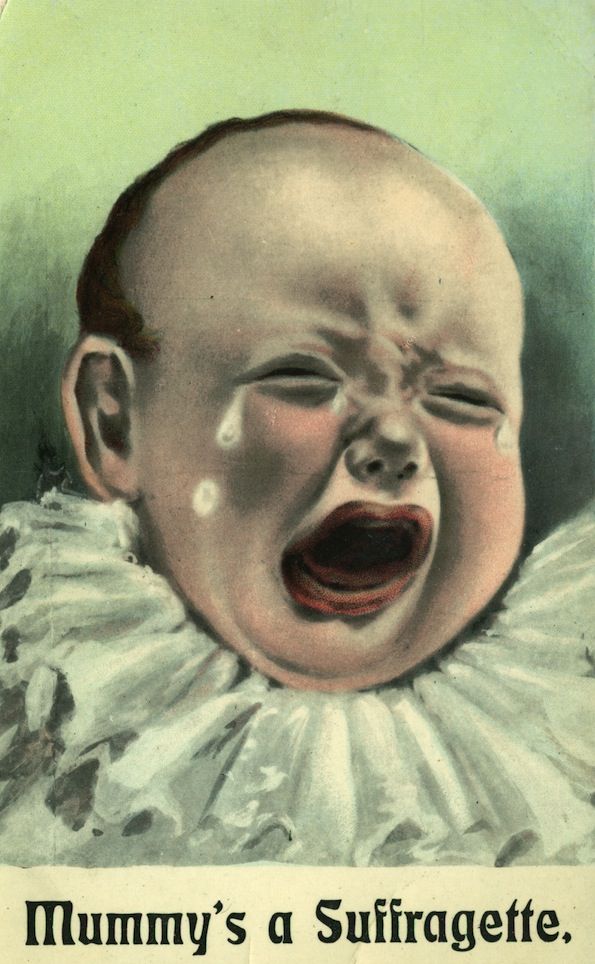
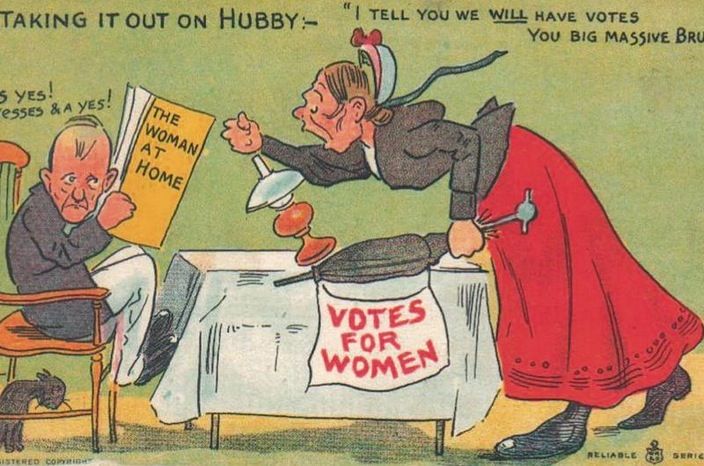
They want to emasculate men and take their role:
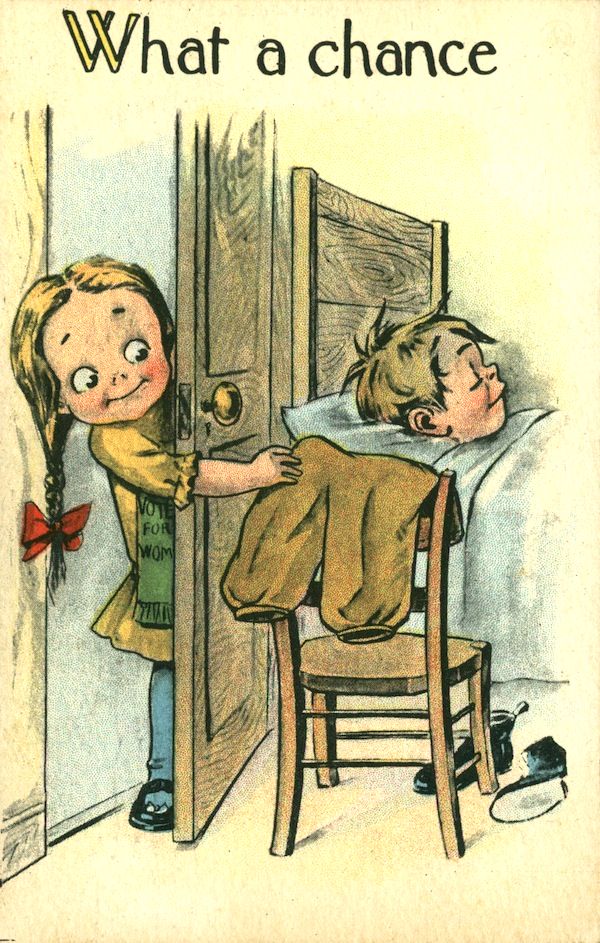
They’re mean to their husbands, if they can get married at all:
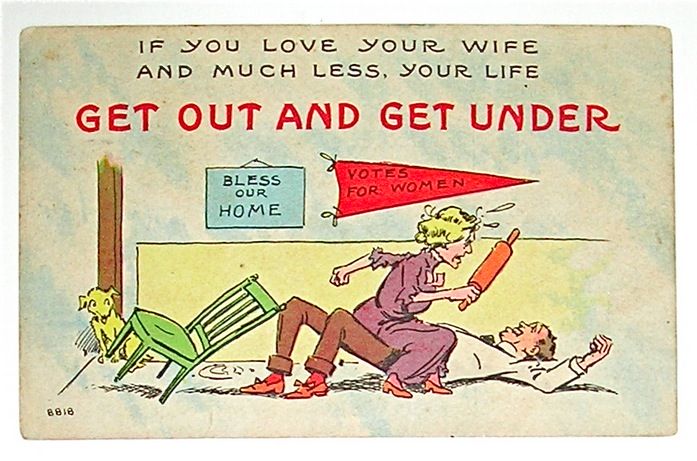
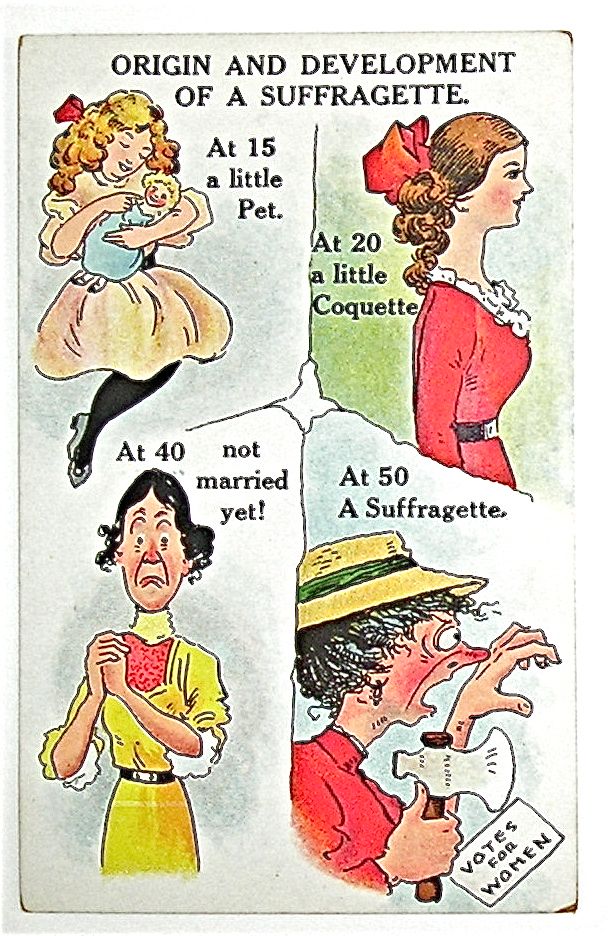
They don’t want equality with men, they want to dominate them:
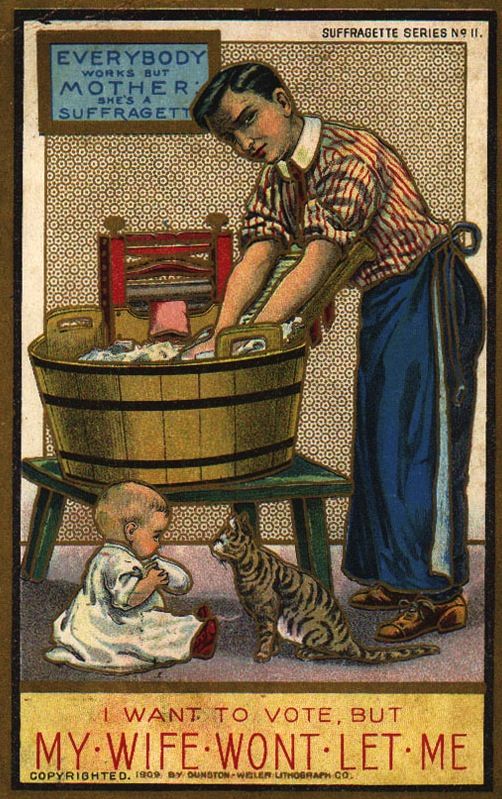
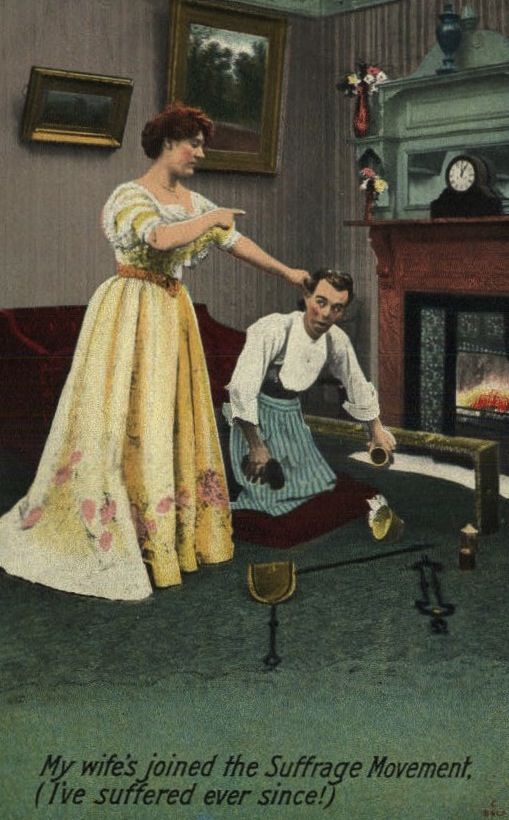
Next time you hear that feminists are ugly or hate men—or any number of stereotypes about women who seek equality—remember that this is exactly what anti-feminists have wanted you to think for the last 200 years.
This post originally appeared on Sociological Images, a Pacific Standard partner site, as “Where Do Negative Stereotypes About Feminists Come From?”





